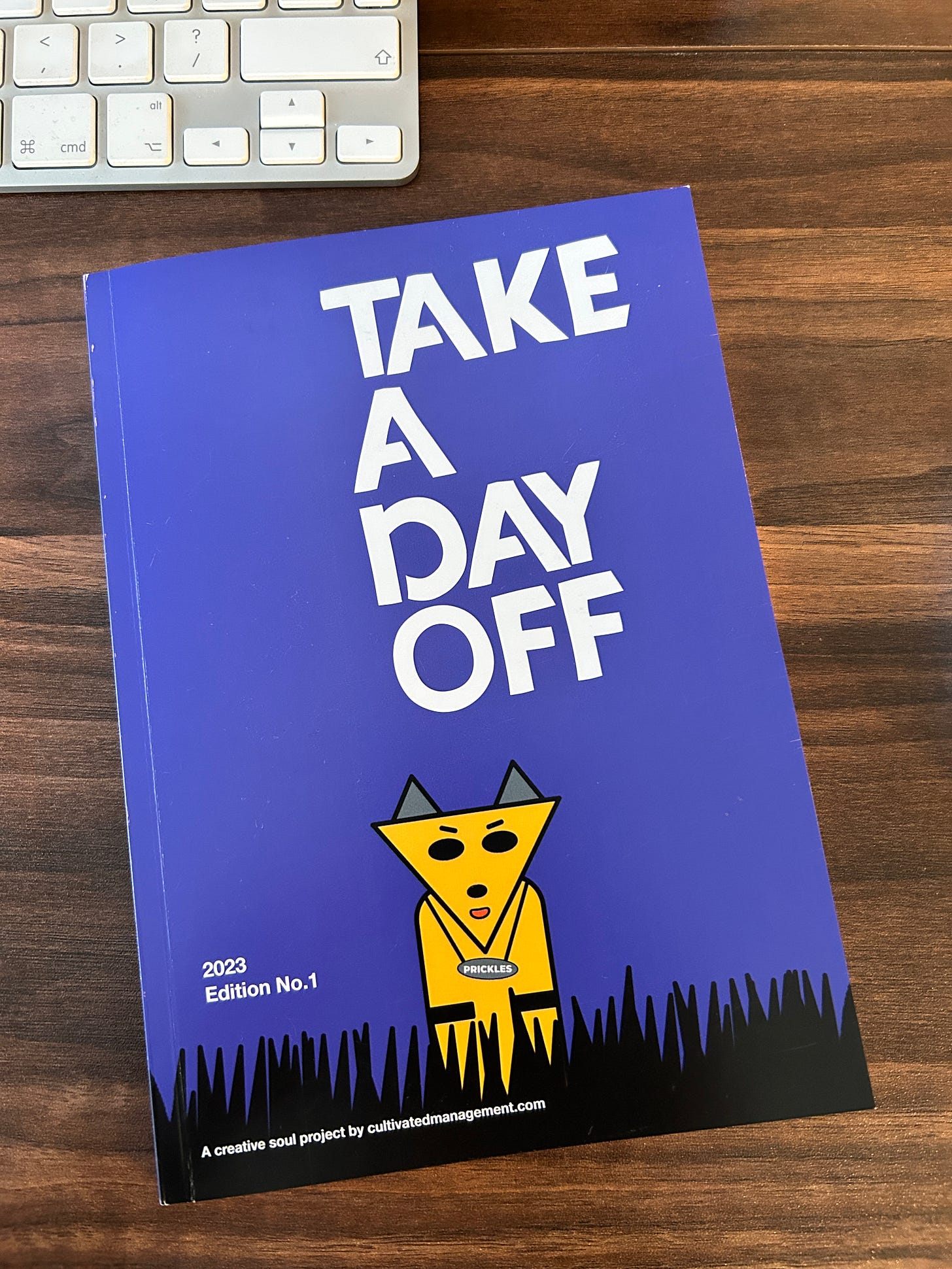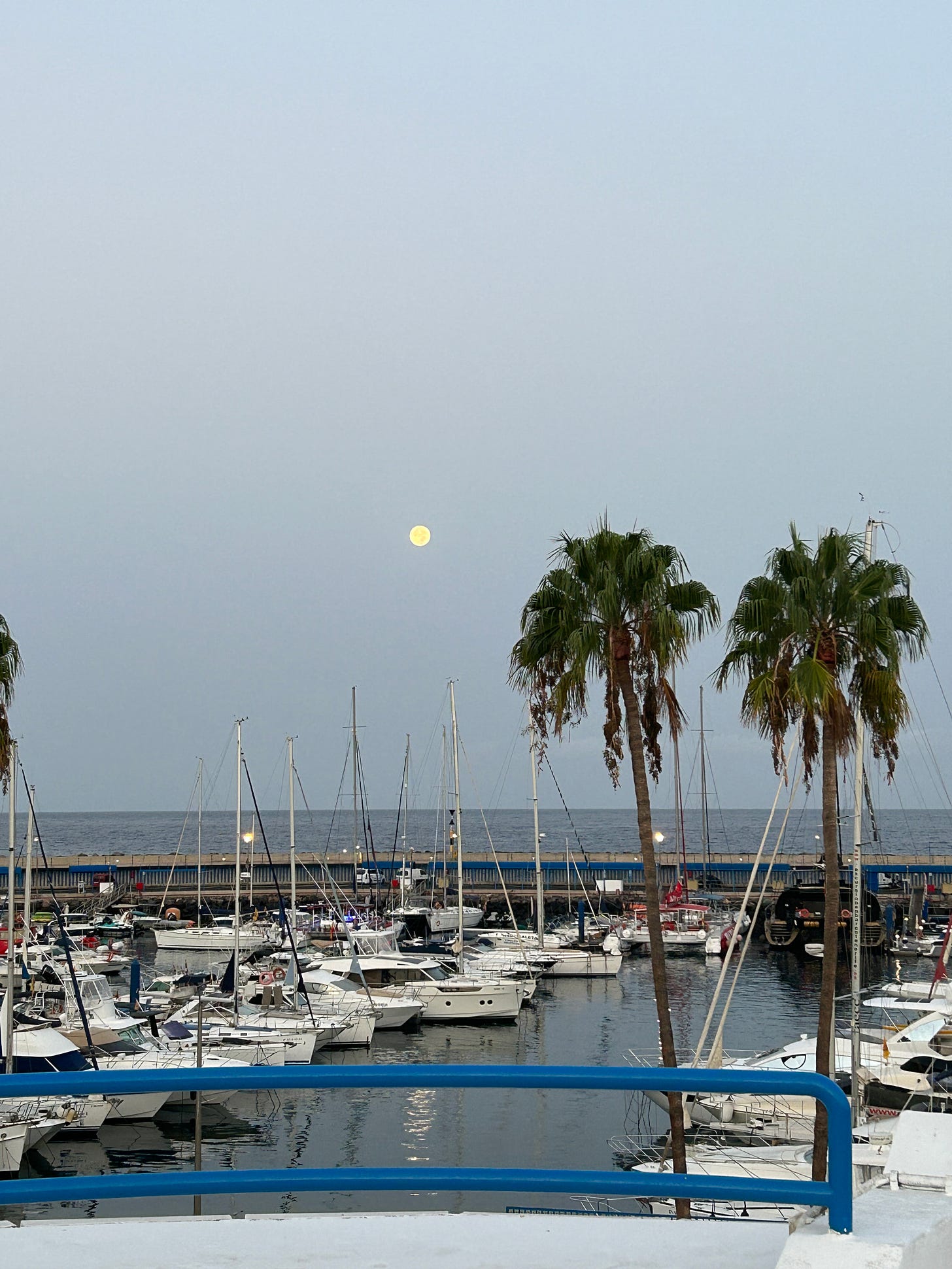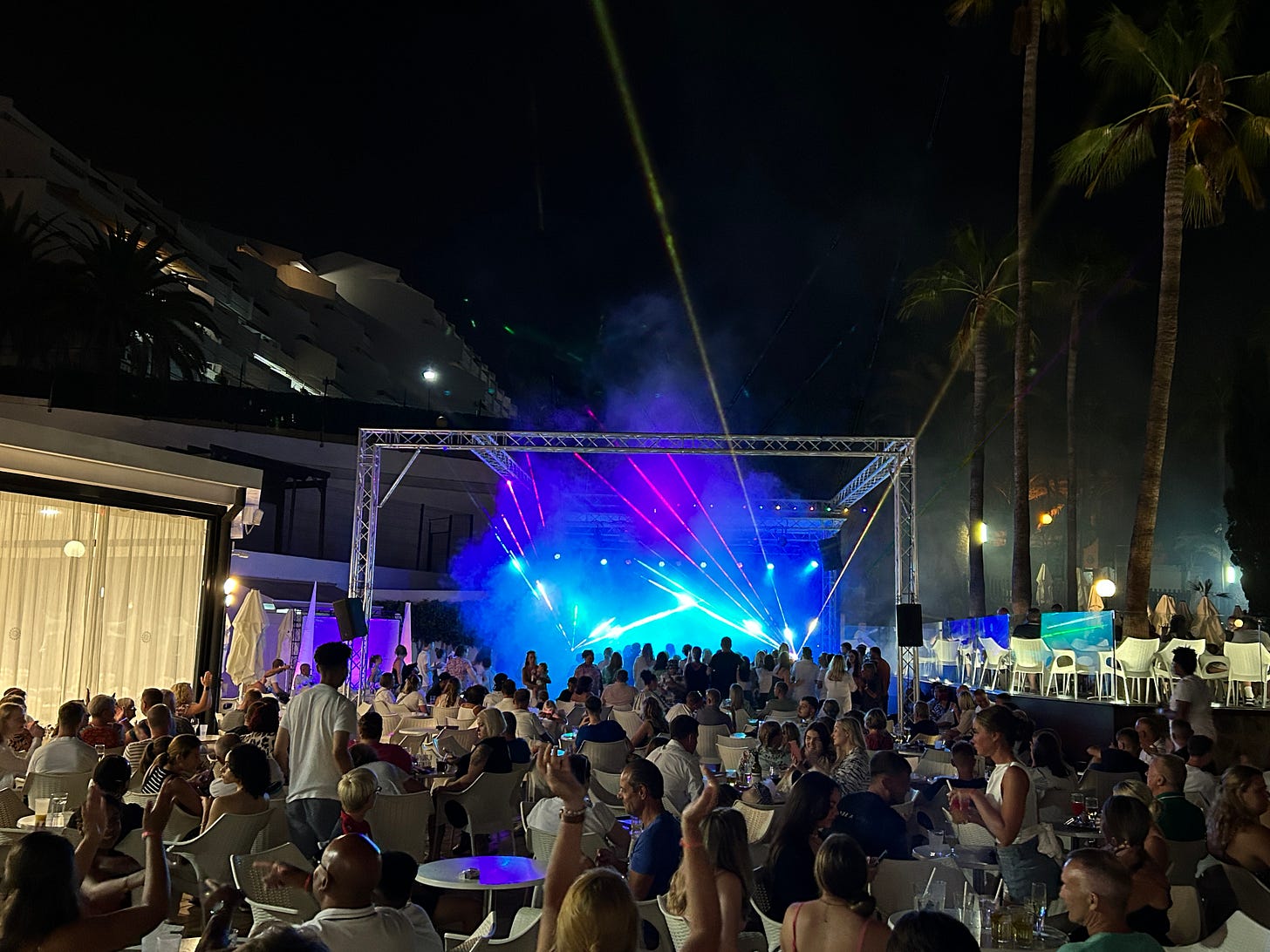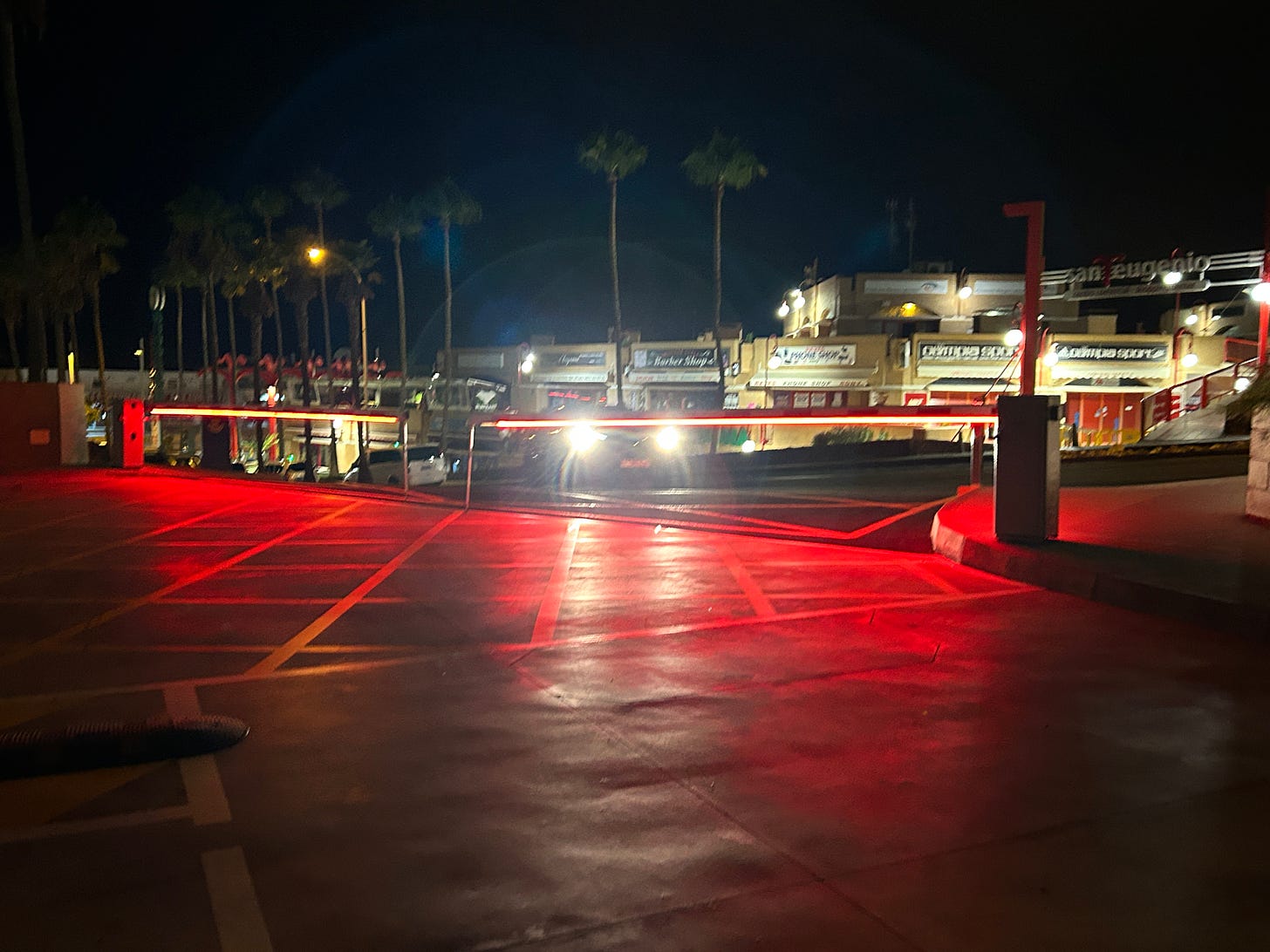5 Lessons learned from the hospitality industry
Plus this year's charities and some interesting links
Hey,
I hope you are safe and well. This week’s schedule is a little wonky as we had no power for a few days last week. The house renovations are starting!
I’ve also just returned from a very pleasant few weeks in Tenerife with the family. And, sad as it is, I observed and studied how the managers ran a large, all-inclusive hotel, catering for many guests. I’ll share what I observed and what I gleaned from my conversations with the managers - yes, I am very sad.
I also recorded 9 episodes of my new creativity series of podcasts on the beach each morning. I was hoping to record all 30 but alas, I had tech problems for two days and frankly, some days I simply sat and watched the sun rise.
For those new to the Cultivated newsletter, welcome, I’m Rob, Chief Futurist Officer at Cultivated Management. Every Tuesday (ahem) I publish this newsletter about envisioning bright futures of work, building strategy and aligning people towards your business goals, as well as tips and advice on improving communication skills - a genuine super power in the world of work. Welcome.
Note : This post is better with images enabled.
In this week’s edition:
Take a Day Off Zine update
Charitable donations
Lessons learned from the hospitality industry
Interesting Links
Take A Day Off Zine
I have finally proofread the Take A Day Off Zine and aim to calculate some shipping costs this week, whilst placing an order for 100 copies. It should be on sale in the next week or so - I am well pleased with it. My kids like it too 🙂
Charitable Donations
Thank you to everyone who has purchased a book, the communication superpower course, or any other piece of work I have ever produced. A portion of each sale goes to charity each year through my Cultivated Charity initiative.
This year I am pleased to announce that my charity of choice is “Become” - a charity here in the UK that helps kids in care, or those who have been in care and are making their way in life. I’ve made the donation for this year, but hope to give them some more money later this year too.
An annual donation also goes to Naomi House each year to support kids who have a limited life expectancy. The work they do is amazing for the kids, and their families, supporting them through a monumentally difficult time. So, thank you all.
Lessons Learned from the hospitality industry
We were lucky and blessed to be able to have a lovely summer holiday this year in Adeje, Tenerife, in a lovely big all-inclusive hotel.
The weather was fabulous, the food was amazing, the free drinks hit the spot and this year, unlike every single year we have ever gone away, none of the boys ended up in A&E. Yes, we warned them to be extra careful this year. Our insurance company loves us as you can imagine.
I’m a people watcher by nature, and have done a couple of videos on the art of noticing, and the humble park bench - both videos aimed at developing the wonderful skill of simply noticing what is going on around you.
It’s a skill I believe can open the door to new insights into how things truly work, how people operate and how things can be improved. As such, I watched whilst on holiday (I can’t sit still and am not a fan of simply laying on a sun bed).
Then I got intrigued as to how the managers of the hotel operated - so I found a manager and asked them what they do. My Spanish is not great, but his English was excellent - and he was gracious enough to explain a few core ideas.
I’m a big fan of learning from adjacent industries. I don’t read many management books (I find them dull), and I certainly don’t read any “agility” based books either (I find them too dogmatic). But I do read, study and learn from adjacent industries. I love to understand how people grow businesses and then weave together many ideas from different industries.
Here are some observed and “explained” lessons which I think you may find valuable.
We didn’t invent the standup
A lot of “agile coaching” is based around ceremonies, or events, such as the standup, planning, retro etc. In fact, my biggest bug bear with agile “ways of working” is the assumption that you must do all of these ceremonies, and often they are merely “done” rather than used for what they are actually for: to communicate.
In every “non-digital” engagement I have been in, teams have already been doing “stand ups” as a mechanism to align people around the day’s activities and work. In this hotel, they did several of these “huddles” as they called them. I prefer that word.
In the morning the “day managers” would huddle with the heads of cleaning, maintenance, bar, food and entertainment. Even though, broadly speaking, each day in the hotel is the same (with the variations of food and entertainment), they still held this short meeting. The manager told me they keep it to a strict 15 minutes, and any issues are taken off-line. Sound familiar to any agile folk?
The goal of the meeting is clarity over the day’s challenges and alignment around outcomes. Love it. You’ll know my work is based on Clarity, Alignment and Action.
After this meeting, each of the heads would then run another huddle with their own teams. Scrum of scrums anyone? And they’ve been operating this way for decades….
The second huddle is about aligning expectations in each team. A chance to ripple down any challenges, or changes from the leaders.
Right Action - rapidly
After the morning huddle everyone got to work. Rapidly and with energy. At 7:00am 20+ cleaning staff would emerge from the staff area and get to work, along with plenty of room service staff too. The chefs and kitchen staff were already busy and the entertainment staff could be seen rehearsing that evening’s routines (they worked long days). The bar staff cracked on with setting up for the day.
Everyone had their area and tasks to complete, and would interact often with those either side of their work to ensure everything was covered. To say it was well oiled would be an understatement. Clockwork.
Everyone knew why they were doing it, what changes were being made and what their outcomes were. Importantly, they also knew and understood what other people were doing too. This is a classic management tactic - ensure everyone understands the role they, and others, play in the delivery of value.
Interrupts were dealt with immediately
In any industry we work in, we can learn a lot about customer orientation from the service and hospitality industries. The hospitality and service industries live and die by customer service. So, when something went wrong, people downed tools to sort it out. A key aspect of this was communication. Each of the Team leads had radios to connect with each other. Real-time, immediate communication. No slack messages, no voicemails, no Kanban board queues, but real-time communication.
It reminded me of a time when I worked as a leader in a tech company. We took it in turns to be the lead tech available for support issues that needed technical input. We’d built our team around this very concept of downing tools if a customer issue came in. The head of support however insisted that her team use email to reach us despite me insisting on real-time comms.
As such, I came back from lunch one day to a wealth of emails about a live issue. “Phone me next time” was my response…. Real-time issues need real-time communication.
Any issue in the hotel was dealt with quickly through real-time comms. No matter who was presented with the issue, they knew who to contact. Rapid, customer orientated, real-time comms. Keep the customers happy. Every business should consider how they can get better at this.
All work flows to someone else
Long time readers will know I have a saying: “With a wider awareness, you will be surprised less often”. It is one of the 10 behaviours of effective employees - to widen your awareness and understand how the business works.
One aspect of this is working out where your work comes from (who gives you work to do) and where your work goes to (who then does something with your work).
All customer work crosses functional boundaries. Therefore, it pays to build relationships at these boundaries so that work coming in is clear and accurate so you can work on it, and that the work you push out meets expectations (and doesn’t come back because you got it wrong).
In the hotel they did one better than this. Every shift, when clearing or closing down, ensured the next shift was already set up.
As an example, when the bar closed at around midnight (yes, I was often still out), they would close down, clean up and tidy away. But. They would also set up for the morning staff. They would prep the coffee area, set up the juice machines, fill up the water systems and put out all “breakfast” signage. Not only were they tidying up their own work, but they were helping the next shift hit the ground running.
The same thing happened with the “day staff” - they would close down the morning and lunch setup, and get everything prepared for the night staff; such as prepping the cocktail mixtures, sorting snacks etc etc.
The cleaning staff did the same, and no doubt the catering teams would also do this (I wasn’t allowed to go back there and see what was happening).
In our own work, how could we help the next-in-line be set up for success? What could we do that would make someone else’s job easier? When we pass on work, are we clear on what the next people need from us? How can we ensure customers have a seamless experience?
Lean into reality - make problems compelling
And probably the most important lesson, and something I talk about often, is that a manager’s job is to lean into the reality of the work, and make the problems so compelling and exciting that people want to work with you to solve them.
And the managers and leaders at the hotel did this. The staff were happy (except the reception staff who were mostly utterly miserable (I never did discover why)), they were engaged in their work and they dealt with interrupts positively.
And yes, I did enjoy my holiday and I did switch off, and I did plot some cool things for you all, and I did spend lots of time with my kids. But there really are lessons in management everywhere. As a people watcher and someone who has a curiosity into how things work, I do, sadly, seem to also spend time “seeing” how things work, even when I’m not at work.
And the highlight of the holiday was a powerboat cruise out to see some whales, then mooring up by a quiet cove, before jumping off the back of the boat like a millionaire. Proper good fun that was. Made me want to jack it all in and buy a boat.
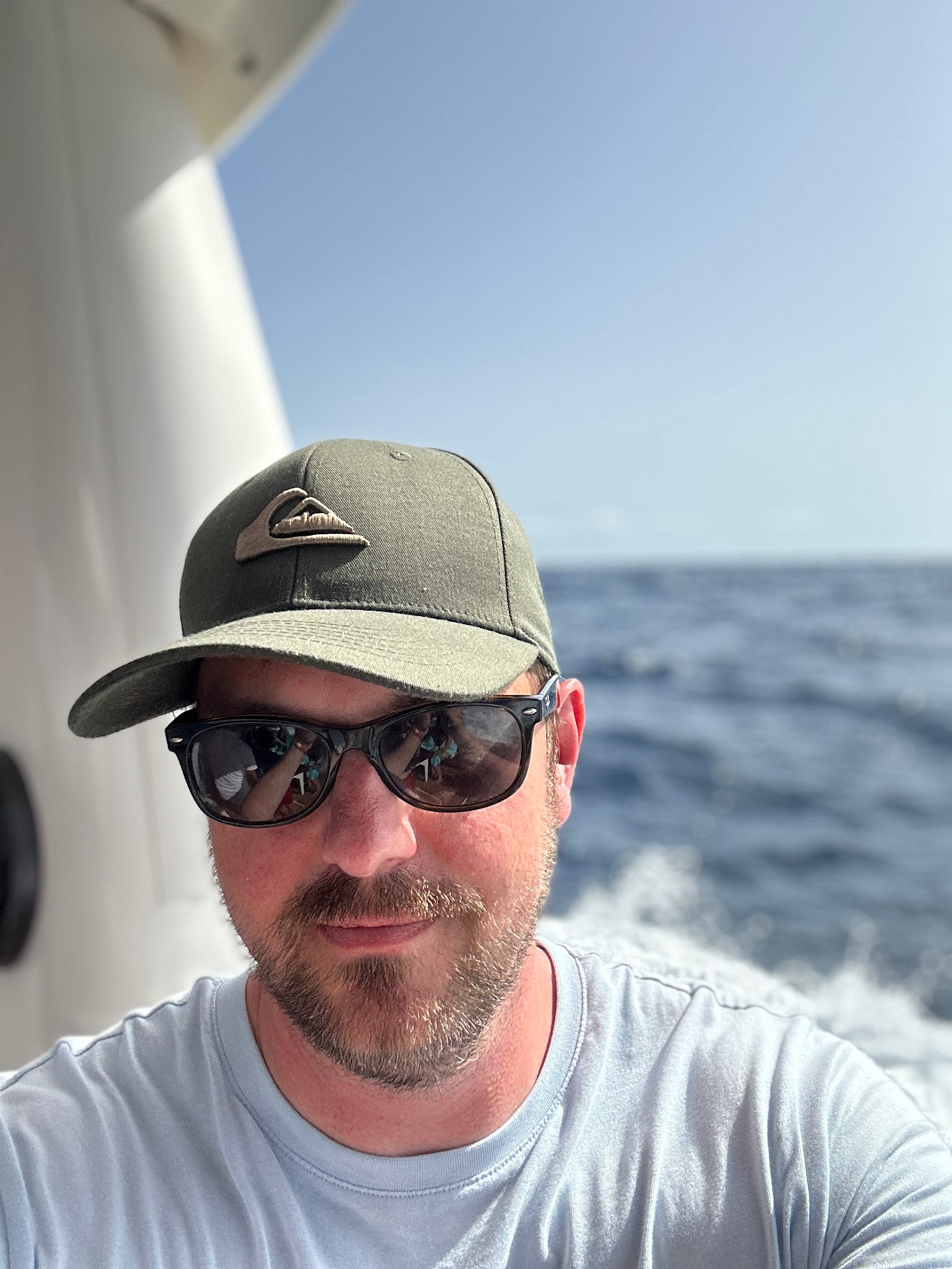
Alas, I cannot do that. But I do have some great content coming for you all over the next half of the year.
Take care and speak to you in the next newsletter.
Rob.
Interesting Links
The irony here - Zoom (the company) has decided it’s employees are more effective back in the office.
Trying to motivate people - avoid these four words. These four words are important, but people are inherently motivated if something is meaningful. Management therefore is more about not demotivating people.
Dealing with burnout - from a “creative” people perspective. You know my view - we’re all creative.
Startup and shutdown routines to avoid work creeping into your life. Essential for those working remotely.
Until next time.
Rob..




